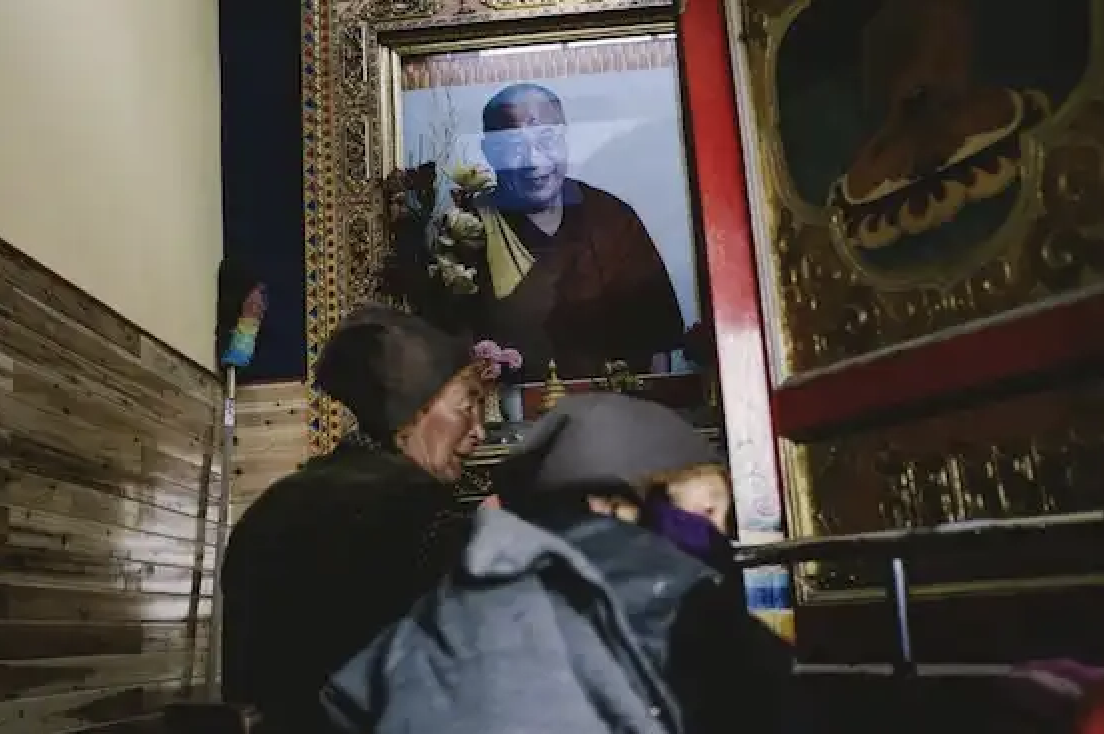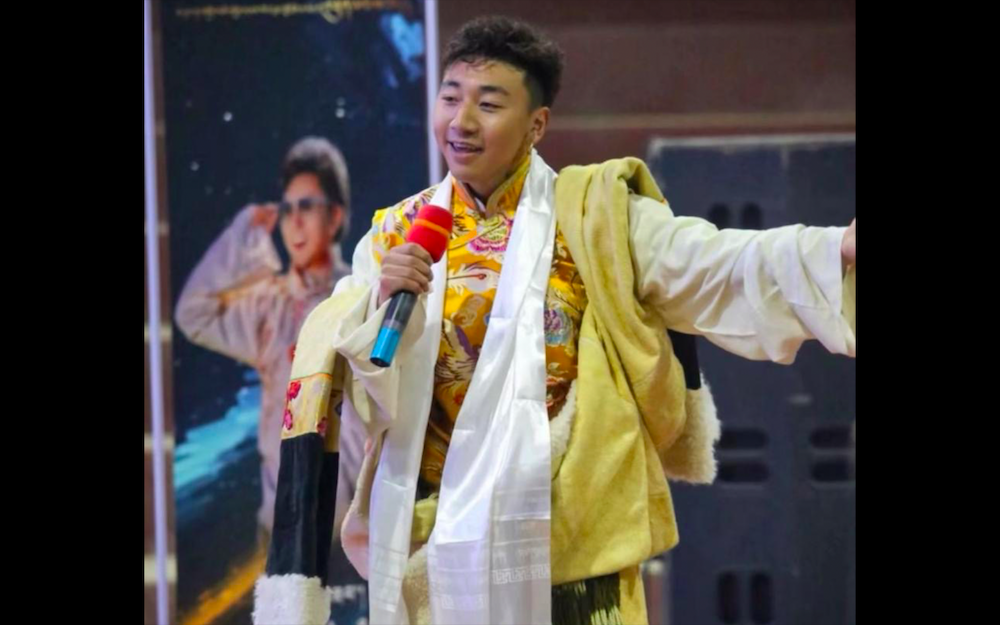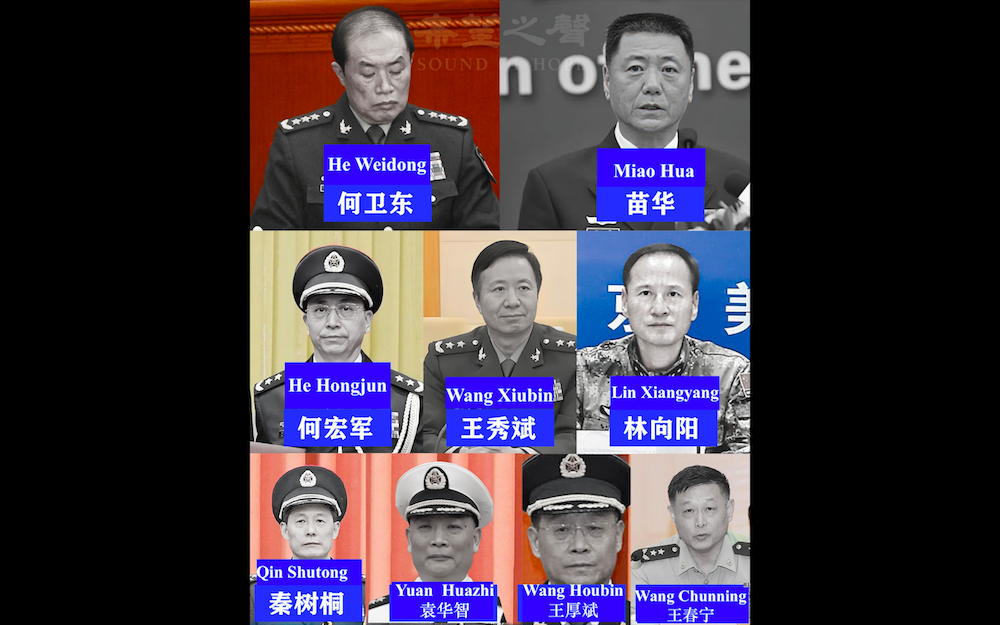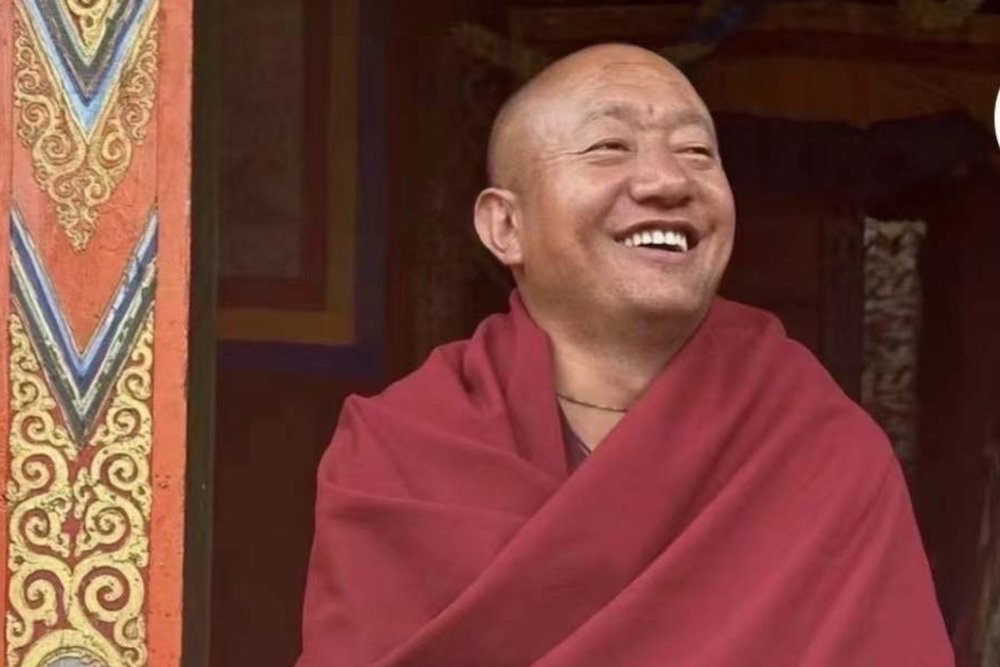Presumably, a participant at any given workshop won’t expect to be woken up with the new sunrise at 6.30 in the morning. But at the Leadership Training of the TYC at Bylakuppe, all the participants woke up at dawn break and slipped into their snickers to prepare for a fresh new educative day with jogging, stretches and exercise, led in the front by Jamyang la of the CENTREX. No doubt future leaders should be physically strong and mentally tough and should maintain a healthy way of living. Refreshed and ventilated the participants sat down for an enlightening session of spiritual teaching of the basic Buddhist principles and moral values related by Ven. Tenpa Tashi la of the CENTREX.
Mr. Sonam Norbu Dagpo chaired the first session of the second day of the Leadership Training on the topic – ‘Introduction to the Tibet – China relations and Evaluation of Tibet – China Negotiations in the light of recent visits of envoys to Tibet’. Reflecting on his own experiences of the past and relating to his recent visit to China as a delegate, he gave a detailed account of Sino – Tibet relations since the invasion of Tibet by China to the present day state of affairs. Citing the reason for failures of the earlier talks on the reluctance on the part of China to indulge in sincere negotiations, he said that the present fourth generation of Communist Chinese leaders are more receptive and want to solve the problem of Tibet in order to improve their relation with other countries. Listing the objectives of the recent delegations he said that it aimed at clarifying H.H. the Dalai Lama’s policy of Middle Way Approach to the PRC and to create a conducive atmosphere enabling direct face to face meeting. He further added that a few months back the envoys of His Holiness the Dalai Lama had conveyed to their Chinese counterparts their wish to make a third visit to China at the earliest convenient date possible. He also expressed his belief that the two visits served as a positive development and hoped that they are the first in the series of visits that will set the stage for the creation of an atmosphere of mutual trust and good will for substantive negotiations on the future of the Tibetan people.
Mr. Vijay Kranti, journalist by profession and editor of H.H. The Dalai Lama’s Hindi autobiography, “Azad Sharnarthi”, took the second session of the day on the topic – ‘Personal Account: Tibetan in today’s Tibet’. For many of the participants who had never seen their fatherland, Mr. Vijay Kranti offered an exhaustive impression on the geographical, political and social condition in Tibet. He expressed his shock over the appalling plight of the native Tibetans who have been reduced to abject poverty and the concentration of large number Chinese in the cities who overpower the business and financial matters in Tibet with privileges superceding the native Tibetans. Vocalising his grief over seeing young Tibetans working as labourers and performing menial jobs he confirmed that there has been no prosperity and economic progress for Tibetans. He added that the once religious country of Tibet where stupas used to be the visual signatures what remains today is a gross disrespect to the religious sentiments of the Tibetans by the Chinese with PLA barracks positioned in Jhokhang and portraits of H.H. the Dalai Lama no longer visible. Correcting the pro-China reports propagated by few media personals and westerners visiting Tibet, he clarified that the masquerades of religious freedom, economic development and social well being are eyewash distinctly fabricated by the Chinese. Expounding upon his understanding of the general sentiments and the vibes that he perceived from the native Tibetans he summed up on a positive note assuring all the participants that ‘Tibet is definitely not a lost cause.’
Mr. Vijay Kranti and Mr. Sonam Norbu Dagpo jointly reviewed the third session of the day, on the topic – ‘An Introduction to the India’s Tibet policy in the light of the Tibet Autonomous Region as a part of the territory of the Peoples’ Republic of China’. Expressing his views on the topic Mr. Vijay Kranti said that the statement made by the Indian Prime Minister on his visit to China opened up wider options for Tibet, reasoning that the terminology of Tibetan Autonomous Region (TAR) and Peoples’ Republic of China (PRC) used in the statement were subject to possible change in the future. He also spoke on the assistance and service that India has time and again provided to the Tibetans and said that Tibet has the moral right to demand for more political support from the Indian government. While pronouncing his views on the subject Mr. Sonam Norbu Dagpo touched on the concept of TAR, its viability and prospect in the context of recognising it as a part of PRC. An engrossing question answer session followed with the participants putting forward their doubts and queries to the speakers.
An important aspect of leadership being the faculty of public speaking, the TYC Leadership Training endeavours to train the young participants to get used to the stage and overcome the apprehension and nervousness of facing the public. The fourth session was dedicated towards developing this faculty amongst the participants as the stage was thrown open to the 6 groups to come forward and present the gist of their group’s discussion on the previous day’s topic of Tibetan Democracy.
The fifth and the last session of the day saw a panel discussion on the subject ‘Rangzen and Autonomy’, the panel comprised of Mr. Karma Chophel, Mr. Sonam Norbu Dagpo, Mr. Phurbu Dorjee, Mr. Vijay Kranti and Ven. Tenpa Tashi and facilitated by Mr. Kalsang Phuntsok. A hectic exchange of views and ideas followed with the speakers appraising the participants on their personal beliefs and assessments of the present political imbroglio. While Mr. Karma Chophel spoke on the indispensability of Rangzen for the preservation of the true identity of Tibetan people, their culture and religion, Mr. Vijay Kranti cautioned the Tibetans on their standing demand for Autonomy by reminding that China in the past has for a couple of times pledged autonomy to Tibet, once after the 17 Point Agreement signed under duress and then after forming the present day Tibet Autonomous Region, both of which failed on credibility and sincerity in the context of conceding true autonomy.
The day concluded with the rendition of the youth anthem, ‘Hum Honge Kaamyab’ truly depicting the zest of the Tibetan youth to succeed in the quest for Rangzen.
For contact at Bylakuppe:
Mr. Kalsang Phuntsok, President, Mob: 9816063228/9891022587/9448026211









